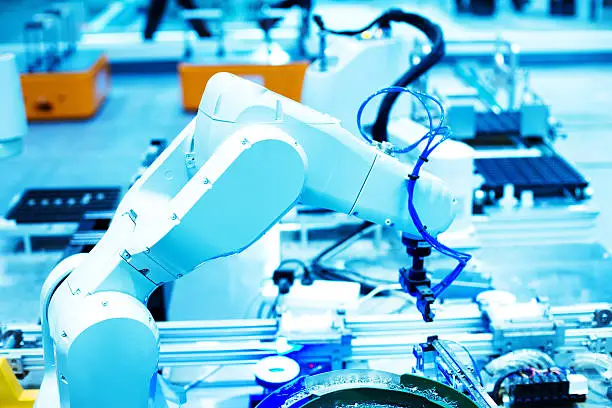Revolutionizing Industrial Production: The Impact of Artificial Intelligence

Artificial intelligence (AI) has emerged as a transformative force across various industries, revolutionizing the way we approach production and manufacturing. In recent years, AI has played a pivotal role in shaping industrial production processes, leading to increased efficiency, productivity, and profitability.
This article explores the profound impact of AI on industrial production and highlights its key benefits. From automation to predictive maintenance, AI-powered systems are paving the way for a new era of smart manufacturing.
Enhanced Efficiency through Automation:
One of the most significant contributions of AI to industrial production is automation. AI-powered robots and machines can perform repetitive tasks with precision and consistency, minimizing human error and maximizing efficiency. This automation not only speeds up the production process but also reduces costs associated with labor and increases overall output. By taking over mundane and monotonous tasks, AI liberates human workers to focus on more complex and strategic activities.
Predictive Maintenance for Optimal Performance:
AI-driven predictive maintenance systems have revolutionized industrial production by preventing equipment failures and minimizing downtime. By analyzing vast amounts of sensor data, AI algorithms can predict and identify potential faults or performance degradation in machinery.
This enables proactive maintenance, allowing for timely repairs or replacements before major breakdowns occur. As a result, industrial facilities can optimize their production schedules, minimize unplanned downtime, and reduce maintenance costs.
Intelligent Supply Chain Management:
AI-powered systems have brought significant improvements to supply chain management, optimizing inventory control and streamlining logistics operations. AI algorithms can analyze historical data, market trends, and customer behavior patterns to accurately forecast demand, enabling better inventory management.
This ensures that materials and resources are available when needed, minimizing stockouts and reducing excess inventory. Moreover, AI facilitates real-time monitoring and tracking of shipments, improving efficiency and reducing transportation costs.
Quality Control and Defect Detection:
AI has revolutionized quality control processes by enabling real-time defect detection and analysis. Advanced computer vision algorithms can examine products on the production line, identifying defects or anomalies with exceptional accuracy.
By implementing AI-driven quality control systems, manufacturers can ensure consistent product quality, reduce waste, and enhance customer satisfaction. Furthermore, the ability to quickly identify and address production issues leads to significant cost savings and faster time-to-market.
Data-Driven Decision-Making:
AI empowers industrial production by leveraging the power of data. By collecting and analyzing vast amounts of production data, AI algorithms can identify patterns, trends, and anomalies that may not be apparent to human operators.
This data-driven approach facilitates informed decision-making, optimizing production processes, and identifying areas for improvement. AI algorithms can identify bottlenecks, streamline workflows, and enhance overall productivity, resulting in higher operational efficiency and increased profitability.
Conclusion:
Artificial intelligence has ushered in a new era of industrial production, transforming traditional manufacturing processes into smart and efficient systems. From automation and predictive maintenance to intelligent supply chain management and quality control, AI has revolutionized the industry, driving enhanced efficiency, productivity, and profitability.
By harnessing the power of AI, businesses can unlock unprecedented opportunities for growth and competitiveness in the ever-evolving global market. Embracing AI-driven solutions will undoubtedly shape the future of industrial production, enabling manufacturers to meet the demands of a rapidly changing world.

